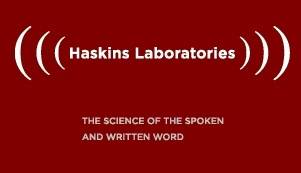Healthy Brain Network EDUCATE Program Looking for participants Dear Friends,...
Read MoreLiterate Brain Institute for Educators
Join leading researchers and practitioners in a conference offering the latest research in accessible talks paired with relevant information and tools participants can bring into their classrooms.
The Science of Reading is now mandated by more than 30 state departments of education. But exactly what do scientists know about how children learn to read, and how can we best put that into practice? The Literate Brain conference will take a balanced, in-depth look at the latest research from the perspectives of neuroscience, cognitive science, and implementation theory. Accessible talks paired with relevant information and tools participants can bring into their classrooms.
Participants will leave grounded in an understanding of how children learn to read, what happens when difficulties arise, interventions that help mitigate stumbling blocks, and gain tools and resources in their quest to help children develop literacy skills.
All participants who attend the entire Institute will receive a certificate for 10 contact hours.
AGENDA
- Thursday, July 13
- Friday, July 14
| Welcome & Introduction | 9 AM | |
| Benjamin Powers, DBA | ||
| Keynote: TITLE | 9:15 AM | |
| Mark Seidenberg, PhD | ||
| Break | 10:30-10:45 | |
| TITLE | 10:45-12:00 | |
| Ken Pugh, PhD | ||
| Lunch | 12:00-1:00 | |
| Lunch included | ||
| TITLE | 1:00 | |
| Nicole Landi, PhD | ||
| Break | 2:15-2:30 | |
| TITLE | 2:30 | |
| Danielle Scorano | ||
| Conclusion & Recap | 3:45-4:00 | |
| TBD | ||
| Reception | 4:30 | |
| Omni Hotel | ||
| Welcome and introduction | 9 AM | |
| TBD | ||
| TITLE | 9:15 AM | |
| Jay Rueckl, PhD | ||
| Break | 10:30-10:45 | |
| TITLE | 10:45-12:00 | |
| Ben Powers, DBA | ||
| Lunch | 12:00-1:00 | |
| Lunch included | ||
| TITLE | 1:00 | |
| Devin Kearns, PhD | ||
| Break | 2:15-2:30 | |
| TITLE | 2:30 | |
| Julia Lindsay, PhD | ||
| Conclusion & Recap | 3:45-4:00 | |
| TBD | ||
The Global Literacy Hub is now part of the Yale Child Study Center.

Haskins Laboratories
The Global Literacy Hub was founded as part of Haskins Laboratories, which was a private, not-for-profit research institute founded in 1935, with a scientific mission to investigate the biological basis of speech, language and reading, and their related disabilities. With long-standing collaborators from University of Connecticut, Yale University, and over 40 international partners, Haskins pioneered the scientific theories that guide current clinical and educational remediations for speech and reading disabilities, including the motor theory of speech perception, the orthographic depth hypothesis, the phonological basis of dyslexia, and the neurobiological system that supports reading. The over-arching mission of the Laboratories was to leverage cutting-edge science to enable those with language impairments to participate more fully in society.
